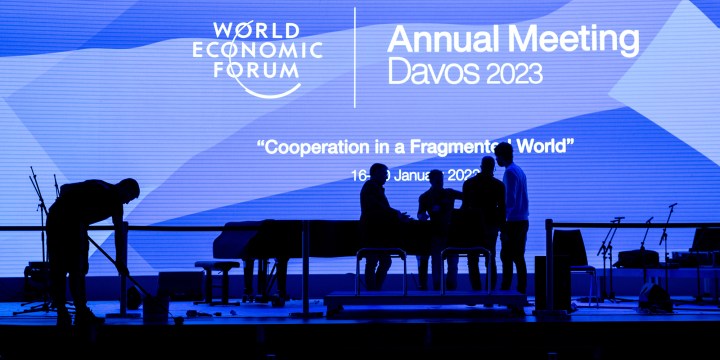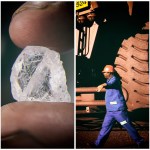World
The delegation of South Africa at Davos

For all the carping about the relevancy of the World Economic Forum, it has made four really dramatic contributions to global diplomacy.
In 1988, Greek and Turkish leaders met and signed an accord that averted a war. At the end of the Korean War, North and South Korean ministers there met in person for the first time. In 2001, Shimon Perez and Yasser Arafat jointly attended a Davos forum called “From Peacemaking to Peacebuilding”. Later, they held hands for a photo-op.
The 1992 WEF was attended by then-president FW de Klerk and the president-to-be Nelson Mandela. It’s probably fair to say that Mandela wowed the conference; he was not well known internationally at the time, but in his usual fashion, he won the hearts and minds of the world.
He also gave perhaps one of his best speeches ever, part of which read, “motivated by nothing other than the fact of our common humanity and informed by the realisation of the common destiny of the peoples of all continents, let us then do together what we can and must do together in the interests of all humanity, while each one of us also does what he or she must do in pursuit of their enlightened self-interest but recognising, in the end, that no man is an island”.
So … er … I know what you are going to say. None of these meetings finally solved the crisis in question, other than perhaps the Greek and Turkish stand-off, although the two countries can hardly be described as friends. The division of Korea still stands, and when South Korean President Yoon suk-Yeol addressed the conference this year, he was all about supply chains and there was no discussion about urgent talks with the North. That ship sailed long ago.
About the Palestine crisis, what can you say? I’m no expert, but from a distance, it’s never been worse; Israeli voters have just re-elected the most belligerent leader in the country’s history, and the Palestinian people have never found an effective leader.
So, the obvious truth would seem to be that these casual meetings really didn’t go anywhere.
But in South Africa’s case, that would not be true. The ANC leaders came to Davos as a nationalist, leftist, armed liberation movement, but left fundamentally changed. Davos exposed ANC leaders to the new reality, and to its great credit, the ANC leaders left as a government in waiting.
Ever since then, South African leaders have had a soft spot for Davos, and it’s been the catalyst for other intra-country agreements, notably the CEO initiative that played a role in calling time on State Capture.
This year was intended to be the year South Africa really made its presence felt at Davos, and in some ways it did. The private session to sell SA included an artful sales pitch, which included not only business leaders from SA, but international investors too, jumping up and saying why they had invested and what more they intended to do. Among others, Discovery CEO Adrian Gore spoke about the difference between perceptions and the facts on the ground.
And on the panels, SA’s business leaders were very present. Was it fun to hear new Standard Bank chair Nonkululeko Nyembezi tear a strip off Zimbabwean Finance Minister Mthuli Ncube for banning the export of lithium? You betcha. Listening to Imtiaz Patel, the chair of MultiChoice talking about sponsoring African television and sport … fabulous.
It all culminated in a party held right in the middle of the conference centre. The wine flowed; Mi Casa played, speeches were made, and poetry was recited. Moreover, the support was palpable: South Africa is still a country the world wants, desperately, to succeed.
And yet, behind the scenes, the omens are, well, ominous. Not having President Cyril Ramaphosa present was of course a setback. The talk was all premised on the idea of “resilience”, which is to some extent true. But really, you don’t want to be a resilient nation. You want to be a successful nation.
At least in its current form, with the best will in the world, the Davos meeting slightly serves to demonstrate an unpleasant truth; the world has bigger problems, and now looks at South Africa less in hope than in frustration – as its own citizens do.
Good investing,
Tim Cohen
- An earlier version of this story misidentified the band Mi Casa as Su Casa. But then again, mi casa se su casa. Apologies.


















Although the message was quite clear with Cyril not going to DAVOS, I must say I would not like to go to a graduation ceremony with all my peers, when I had failed.
Well done to all those graduates who went and held our SA flag high and showed the world we lie in waiting desirous of a true leadership to show us the way.